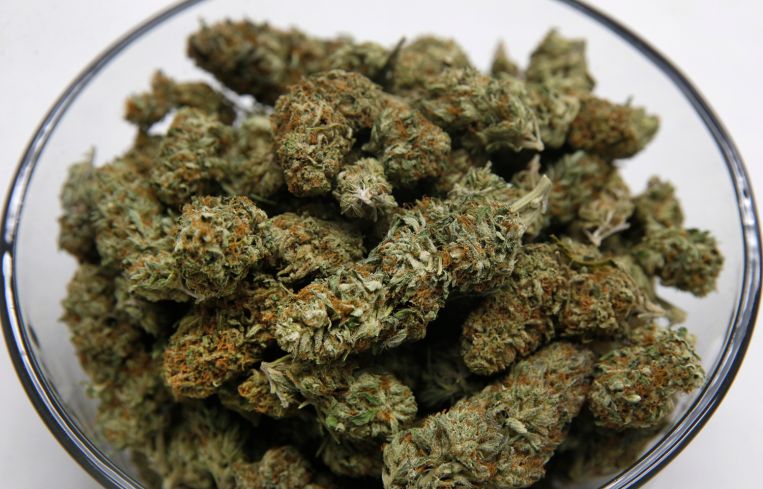Gov. Hochul Proposes Heavy Fines for Illicit Cannabis Shops
By Celia Young March 23, 2023 1:31 pm
reprints
Illegal cannabis sellers could see sky-high fines under new legislation proposed by Gov. Kathy Hochul on Wednesday, giving state officials greater power to crack down on New York’s illicit pot market.
The bill would set fines up to $10,000 a day for shops that sell cannabis without a license, and businesses found possessing illegal marijuana plants or products could be hit with penalties as high as $200,000, according to the proposed rules.
It would also give the Office of Cannabis Management (OCM), the state agency overseeing marijuana retail licensing, the authority to seize illegal products and allow OCM to shut down unlicensed cannabis retailers.
“The continued existence of illegal dispensaries is unacceptable, and we need additional enforcement tools to protect New Yorkers from dangerous products and support our equity initiatives,” Hochul said in a statement.
Under the proposed law, OCM could investigate any location growing, distributing or selling cannabis that has not been sourced from a legal distributor and taxed. OCM, the attorney general or local police would be able to enforce a preliminary injunction to stop businesses suspected of selling cannabis without a license, according to the bill.
Hochul’s proposal is the latest move in a state and city effort to shutter the thousands of illegal pot shops that have cropped up in New York City, threatening its fledgling legal market.
Late last year, the New York City Sheriff’s Office seized $4.1 million worth of illegal cannabis product during a two-week operation. Manhattan District Attorney Alvin Bragg warned 400 illicit retailers in February that his office would force landlords to evict them.
As New York cracks down on illicit sellers, the state has attempted to get the legal marijuana market up and running, though the rollout of licenses has been slow. The OCM has so far approved 66 retail permits for businesses led by people who have been previously arrested for a marijuana-related offense, dubbed Conditional Adult-Use Retail Dispensary (CAURD) applicants, but only three shops have opened in the city.
OCM Executive Director Chris Alexander believes that curtailing the illegal market will help licensed sellers gain traction and keep consumers safe.
“Entrepreneurs looking to participate in our legal cannabis industry — especially justice-involved individuals looking for a CAURD license — are being economically harmed by bad actors filling their storefronts with products that are questionable, unregulated and potentially dangerous,” Alexander said in a statement.
But the legal market faces more challenges than competition from illicit sellers. A lawsuit from a group of medical marijuana companies filed in Albany Supreme Court last week challenged the state’s licensing program, arguing that prioritizing those who have been discriminated against for previous marijuana use is unconstitutional, Gothamist reported.
Celia Young can be reached at cyoung@commercialobserver.com.



